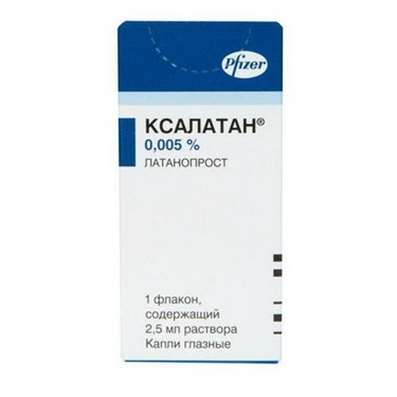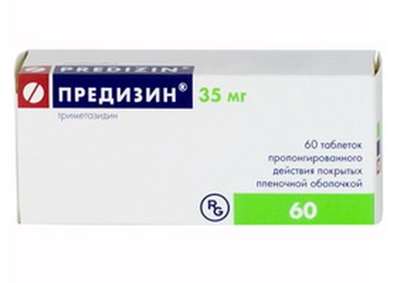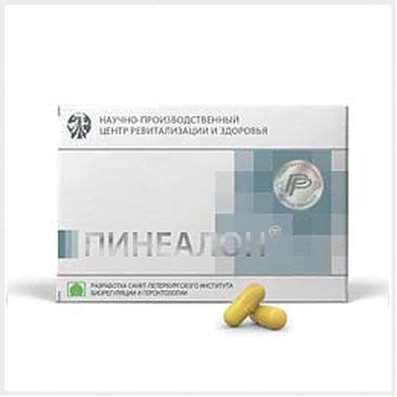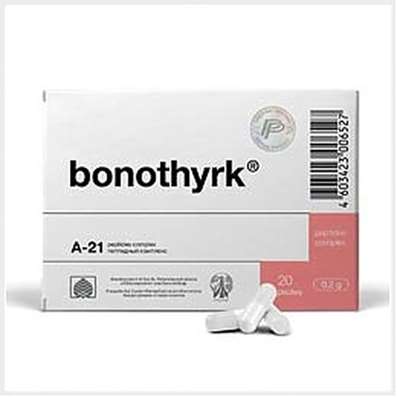Instruction for use: Trekrezan
I want this, give me price
Dosage form: Substance-powder; tablets
Active substance: Oxyaethylammonii methylphenoxyacetas
ATX
A13A Tetanus preparations
Pharmacological groups:
Adaptogenic means [Generalizing agents and adaptogenes]
Adaptogenic means [Detoxifying agents, including antidotes]
The nosological classification (ICD-10)
A49.9 Bacterial infection, unspecified: Chronic bacterial infection; Chronic bacterial infections; Anaerobic bacterial infection; Bacterial superinfection; Acute bacterial infection; Bacterial infections of severe course; Intrahospital infections; Gram-negative aerobic pathogen; Secondary bacterial infections; Infections in Patients with Weakened Immunity; Infections in surgery; Postinfectious glomerulonephritis
B34.9 Viral infection, unspecified: Viral infections; Infections viral; Viral respiratory tract infections; Viral infection
D84.8 Other specified immunodeficiency disorders: Immunodeficiency due to loss of protein; Immunodeficiency states secondary; Immunodeficiency states with protein loss; Secondary Immune Deficiency; Secondary immunodeficiency status; Secondary immunodeficiency states; Secondary immunodeficiency; Acquired immunodeficiency; Syndrome of secondary immunodeficiency; Secondary immunodeficiencies; Immunodeficiency states primary
D84.9 Unspecified Immunodeficiency: Pneumonia in immunodeficient states; Autoimmune disease; Autoimmune diseases; Severe immunodeficiency; immune deficiency; Immunodeficiency; immunodeficiency diseases; Immunodeficiency states due to surgery; Immunotherapy for cancer; Immunomodulation; Infections in patients with weakened immune systems; Correction of immune deficiency; Correction of immunodeficiencies; Correction of a weakened immune system; Correction of a weakened immunity in immunodeficient states; Violation of immunity; Violation of the immune status; Immune System Disorders; Primary immunodeficiency; Maintaining immunity; Lowering the body's defenses; Lowering the immunity; Lowering the immunity of colds and infectious diseases; The decrease of the immune status; Lowered resistance to infections; Lowered resistance to infections and colds; Lowered resistance; Immunosuppression; Predisposition to colds; acquired immune deficiencies; Radiation immunodeficiency; The development of immunodeficiency; Immune dysfunction syndrome; immunodeficiency syndrome; primary immunodeficiency syndrome; Reducing the body's defenses; Immunosuppression; Reduced immune defense; Reducing local immunity; Reducing the total body resistance; The decrease in cell-mediated immunity; Reduced resistance to infections in children; Reducing the body's resistance; Reduced resistance; reduced immunity; Status immunodeficiency; Stimulation of the processes of nonspecific immunity; Heavy selective secondary immunodeficiency; immunity Oppression; Primary immunodeficiency
E63 Physical and mental overloads: Recovery period for athletes; Restoration of physical fitness of sportsmen; High psychoemotional load; High psychoemotional loads; High physical activity; Continuous overload and voltage; Prolonged physical and mental loads; Prolonged physical activity; Intellectual Loads; Intensive mental and physical activity; Intensive physical activity; Tense mental activity; Impairment of mental performance; Inadequate nutrition for physical and mental overloads; Nervous and physical overstrain; Nervous overvoltage; Nervous overwork; Nervously-emotional overload; Increased mental and physical load; Increased mental load; Increased physical activity; Increased physical and mental stress; Increased physical and psychoemotional load; Increased physical and emotional stress; Increased physical activity; Increased psychoemotional loads; Increased physical activity; Decreased mental performance; Decrease physical and mental performance; Reduced performance; Mental and physical exhaustion; Psychological and physical stress; Psycho-emotional overload; Psychoemotional stress; Psychoemotional Disorder; Physical overstrain syndrome; Decreased mental performance; Reduced tolerability of psychophysical loads; Reduced mental performance; State of fatigue; Mental and psychoemotional load; Mental and physical load; Mental and physical overload; Mental and physical fatigue; Mental load; Mental and physical exhaustion.; Mental and physical stress; Mental and physical overstrain; Mental and physical exhaustion; Mental overload; Increased physical and mental stress; Physical and mental load; Physical and mental performance; Exercise stress; Physical overload; Physical and emotional overloads; Physical overload; Physical and mental stress; Physical and mental stress; Physical overstrain; Physical loads; Chronic fatigue; Chronic physical overstrain; Excessive physical and mental stress; Excessive physical and mental stress; Excessive physical activity; Excessive mental and physical stress; Extreme physical activity; Physical exercise
F10.3 Abstinence: Alcohol withdrawal syndrome; Abstinence syndrome; Abstinence syndrome with alcoholism; Abstinence; Alcohol abstinence; Alcohol withdrawal status; Alcohol withdrawal syndrome; Postabstinctive disorder; Post-abstinence condition; Hangover syndrome; Abstinence syndrome; Alcohol abstinence syndrome; Alcohol withdrawal syndrome; Abstinence condition
J06 Acute upper respiratory tract infections of multiple and unspecified locations: Frequent colds of viral diseases; Infections of ENT organs; Acute respiratory illness of influenza nature; Pain for colds; Acute catarrhal disease; Cold; Colds; Colds; Respiratory infection; Seasonal catarrhal disease; Seasonal colds; Pain in infectious and inflammatory diseases of the upper respiratory tract; Bacterial infections of the upper respiratory tract; Bacterial infections of the respiratory system; Viral respiratory disease; Viral respiratory tract infections; Inflammatory disease of the upper respiratory tract; Inflammatory diseases of the upper respiratory tract; Inflammatory diseases of the upper respiratory tract with difficult to separate sputum; Inflammatory respiratory disease; Secondary infections for colds; Difficult sputum separation in acute and chronic respiratory diseases; Upper respiratory tract infections; Infections of the upper respiratory tract; Respiratory tract infections; Respiratory and lung infections; Infectious-inflammatory diseases of the upper respiratory tract; Infectious-inflammatory diseases of the upper respiratory tract and ENT organs; Infectious-inflammatory diseases of the upper respiratory tract in adults and children; Infectious-inflammatory diseases of the upper respiratory tract; Infectious inflammation of the respiratory tract; Respiratory tract infection; Qatar upper respiratory tract; Catarrh of the upper respiratory tract; Catarrh of the upper respiratory tract; Catarrhal phenomena from the upper respiratory tract; Cough in diseases of the upper respiratory tract; Cough for colds; ARVI; ARI; ARI with phenomena of rhinitis; Acute respiratory infection; Acute infectious-inflammatory disease of the upper respiratory tract; Acute respiratory disease; Persecution in the throat or nose; Respiratory and viral infections; Respiratory diseases; Respiratory infections; Recurrent respiratory tract infections; Secondary infections with influenza; Influenza states; Feverish conditions for influenza
J11 Influenza, virus not identified: Influenza; Influenza in the early stages of the disease; Influenza in children; cold in the chest; Begins flu-like condition; Acute disease parainfluenza; parainfluenza; parainfluenza state; influenza epidemics; The pains of the influenza
R53 Malfunction and fatigue: Asthenic disorders; Asthenic conditions; Asthenic phenomena; Asthenic syndrome; Asthenic disorder; Asthenic state; Asthenic phenomenon; Asthenia; Astheno-adynamic subdepressive state; Asthenovegetative symptoms; Asthenic-autonomic symptomatology; Asthenic autonomic disorder; Asthenodepressive disorder; Astheno-depressive disorder; Asthenodepressive state; Astheno-depressive state; Asthenoneurotic disorder; Astheno-neurotic state; Fast fatiguability; Flu of young workaholics; Influenza yuppie; Diabetic asthenia; Exhaustion of the nervous system; Exhaustion physical; Malaise; Nervous depletion with depression; General mental fatigue; General physical fatigue; General malaise; Pathological fatigue; Increased fatigue; Mental fatigue; Mental exhaustion; Astenovegetative Syndrome; Chronic Fatigue Syndrome; Decrease in total activity; The state of increased fatigue; Conditions of increased fatigue; Mental fatigue; Prostration; Fatigue; Fatigability; Physical fatigue; Physical and mental fatigue; Physical overwork; Functional asthenic conditions; Chronic fatigue; Chronic asthenic conditions
T56.9 Toxic effect of metal, unspecified: Poisoning with rare earth metals; Heavy metal poisoning; Poisoning by heavy and rare-earth metals; Heavy metal poisoning
T67 Effects of high temperature and light effects: Overheating of the body
T69.9 Effect of low temperature, unspecified: Freezing; Subcooling
Y40 Adverse reactions in the therapeutic use of systemic action antibiotics
Z73.0 Overwork: Mental fatigue; Restoration of physical fitness of sportsmen; Restoration of the body's energy status; General weakness
Z73.2 Lack of rest and relaxation: Mental fatigue; High mental loads; General weakness; State of fatigue
Z73.3 Stress state, not elsewhere classified: Psychological and physical stress; High mental loads; Pre-stress condition; Psychological stress in air flights
Composition
Tablets 1 table.
active substance: Oxyethylammonium methylphenoxyacetate (trrexane) 0.2 g
Auxiliary substances: potato starch; Sugar milk (lactose monohydrate); Calcium stearate (calcium stearate)
Description of dosage form
Tablets: white or white with a yellowish or kremovatym color shade, flat-cylindrical.
Pharmachologic effect
Mode action - immunomodulating, adaptogenic.
Pharmacodynamics
Trekrezan is an immunomodulating drug with pronounced adaptogenic properties. The drug stimulates the production of α- and γ-interferons, promotes the increase and correction of the immune status of the organism due to activation of cellular and humoral immunity, stimulates the phagocytic activity of macrophages. The drug strengthens the immune system of the body, increases endurance with physical and mental loads, reduces the effect of various toxins, increases the body's resistance to hypoxia, low and high temperatures and other unfavorable environmental factors. The drug has a pronounced antitoxic effect when poisoned with ethanol, organic solvents, salts of heavy metals.
Indications for the preparation Trekrezan
Increase of immunity (prevention and treatment of colds, flu, ARVI and other viral and bacterial diseases);
Increase physical and mental performance and prevent fatigue, increase the body's resistance to various stresses (hypoxia, overheating, hypothermia);
Secondary immunodeficiency states, incl. Against a background of prolonged antibiotic therapy;
In the complex therapy for poisoning with salts of heavy metals;
In the complex therapy of alcohol withdrawal syndrome.
Contraindications
Hypersensitivity to any of the components of the drug;
Hereditary lactose intolerance, insufficiency of lactase or impaired absorption of glucose and galactose;
pregnancy;
Lactation period;
Children under 12 years (due to lack of data on efficacy and safety of use).
Side effects
In rare cases, allergic reactions.
Interaction
There was no undesirable interaction with other drugs.
Dosing and Administration
Inside.
To increase immunity and prevent colds for adults and children over 12 years - 0.2 g / day for 7-14 days.
During the treatment of colds, flu, SARS, adults and children over 12 years old - on the first day 0.6 g / day, then daily for 0.2 g / day for 7 days.
To increase physical and mental performance and enhance the body's resistance to various stresses - on the first day of 0.6 g / day, then daily for 0.2 g / day for 7 days.
When poisoning with salts of heavy metals - 0,4-0,6 g / day daily for at least 5 days.
To reduce the manifestations of alcohol withdrawal syndrome - 0,4-0,6 g / day daily for 5 days.
If necessary, the treatment is repeated at intervals of 1-2 months.
Overdose
Symptoms of intoxication due to drug overdose are not noted.
Release Form
Tablets, 200 mg. In banks of glass mills with a triangular aureole, sealed with stretched plastic caps with sealing element or in banks of type BV with screwed plastic caps (type 1.1a), 10, 20, 50 pcs. Each label has a label attached to it.
In the outline of the cell packaging of PVC film and foil aluminum printed lacquered or instead of foil - paper packaging with a polymer coating, 10 pcs.
In contour non-cellular packaging made of paper with PE coating or with a polymer coating on both sides, 10 pcs.
Each bank or 2, or 5 contour mesh or non-cellular packages in a pack of cardboard.
Manufacturer
JSC "Usolie-Siberian Chemical Pharmaceutical Plant". Russia.
Address for correspondence (including for receiving claims): 665462, Usolye Sibirskoe, Irkutsk region.
Tel .: (395-43) 5-89-10; Fax: (395-43) 5-89-08.
A comment
In a number of studies the following data were obtained:
- a study of V.V. Bulanova1 showed a decrease in the incidence of acute respiratory disease when Trekrezan was taken by 55%. A significant increase in the number of lymphocytes indicates a positive effect of Trecresan on the immune status of the organism;
- in the work of A.V. Bolekhan2 showed the influence of Trecresan on immunity in acute bronchopulmonary inflammation due to an increase in lymphokine-producing function of lymphocytes in the inhibition of migration of leukocytes with concanavalin A by 19% and phytohemagglutin by 10%, and neutrophil activity increased by 7%;
- a study of AA. Elistratova3 proved the maintenance of high indicators of physical and mental performance under extreme environmental influences. In conditions of low temperatures, Trecresan had a positive effect on CAS, stimulating efficiency, increasing the endurance of the muscular system. With an increase in temperature, the use of Trecresan helped to improve the respiratory system - respiratory rate, minute breathing volume, the Stange test, the Gentcha test.
Thus, Trekresan is unique in its combination of pronounced immunomodulating and adaptogenic properties. This is important in cases of asthenic conditions often encountered in colds and frequent need to increase the resistance of the organism to climatic loads and restore working capacity.
1 Adaptive adaptations of the body with adaptogen and training (Arkhipov SA, Bulanova VV, Sikacheva Yu.M., Golovanov SA) // Physical culture and sport in modern society. Proceedings of the VII scientific and methodical conference PIFK MGPU. - Moscow, 2008 - P. 20.
2 Zarubina IV, Bolekhan AV, Shabanov PD "The effectiveness of Trekresan in experimental bronchopneumonia in rats" // Bulletin of Experimental Biology and Medicine, 2006.- T. 142.- No. 8.- P. 170-173.
3 Shabanov PD, Ganapolsky VP, Zarubina IV, Zhumasheva AB, Elistratov AA The metabolic activator is cracked: the study of adaptogenic and immunomodulating properties // Neurosciences. 2006 - T. 3.- No. 5.- P. 43-48.
Conditions of supply of pharmacies
On prescription.
Storage conditions of the drug Trekrezan
In a dry place protected from light.
Keep out of the reach of children.
Shelf life of the drug Trekrezan
2 years.
Do not use after the expiry date printed on the package.

 Cart
Cart





